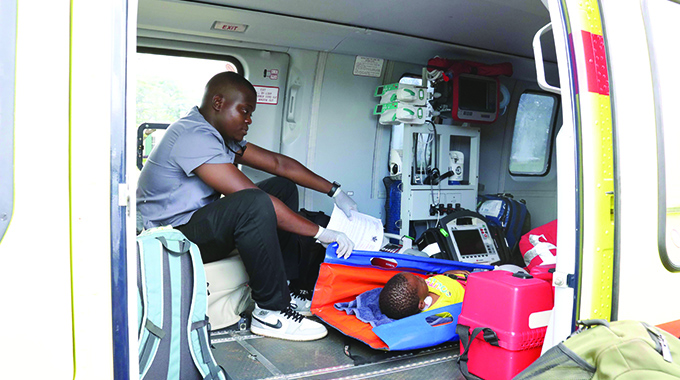Mpilo Central Hospital in Bulawayo has made history by introducing Zimbabwe’s first post-basic nursing diploma in accident and emergency management.
This groundbreaking programme is designed to elevate emergency healthcare in the country to international standards, with the ultimate goal of saving more lives.
The two-year postgraduate programme, approved by the Ministry of Health and Child Care last year, officially began in September. It aims to equip nurses with specialised skills to effectively manage critical emergency cases.
Mpilo Central Hospital’s chief medical officer, Dr. Narcisius Dzvanga, explained that the programme is being conducted in collaboration with Wits University in South Africa, which is providing mentorship and support.
“This post-basic nursing diploma is the first of its kind in Zimbabwe, supported by mentorship from Wits University alongside our local mentors,” said Dr. Dzvanga.
“This initiative will not only enhance emergency care at Mpilo Central Hospital but across the nation. We have recruited nursing staff from all regions of Zimbabwe, and as we increase the number of trained professionals, we expect a significant improvement in patient outcomes,” he added.
The partnership with Wits University also includes material and human resource training to enhance the programme’s quality.
Read: Karo Platinum Project Delayed to 2026 Amid PGM Market Challenges
The diploma programme incorporates training in managing patients during air transport, aligning with the Government’s Air Ambulance initiative launched in 2023. The service operates six helicopters stationed in Harare, Bulawayo, Victoria Falls, and Manicaland, ensuring nationwide emergency medical support.
These specialised air ambulances are equipped with advanced medical technology and staffed by trained personnel, providing intensive care services even in remote areas.
“With an air ambulance stationed at United Bulawayo Hospitals and this new diploma, we are better equipped to save lives. Nurses in the programme are learning how to manage patients during air transport, a critical component of modern emergency care,” said Dr. Dzvanga.
Zimbabwe experiences a high frequency of road traffic accidents, with incidents occurring every 15 minutes and five fatalities daily. Dr. Dzvanga emphasised the programme’s significance in equipping medical professionals with advanced skills to manage various emergencies effectively.
“While all medical staff receive basic accident and emergency care training, this programme takes it to the next level, aligning with international best practices. It prepares our nurses to handle diverse emergencies, whether from road accidents, falls, or domestic violence,” he explained.
The current cohort includes 20 students, but Dr. Dzvanga expressed optimism about expanding the programme to meet the nation’s growing needs.
“My vision is to see two intakes per year and similar programmes rolled out at other central hospitals. With only 20 professionals for the entire country, this is just the beginning of what we hope will be a significant transformation in emergency care,” he said.
The launch of this diploma marks a critical step in addressing Zimbabwe’s emergency healthcare challenges. It aligns with the Government’s broader mission to modernise the healthcare system as part of the Vision 2030 agenda to become an industrialised and prosperous nation.
“This initiative is a seed we’ve planted. Though the students are still in the theoretical phase, I’m optimistic about the results once they begin practical training in casualty departments,” said Dr. Dzvanga.
He concluded by highlighting Mpilo Central Hospital’s commitment to innovation and collaboration in improving patient outcomes. Expanding the programme is essential to ensure every corner of Zimbabwe benefits from enhanced emergency care.
For comments, Feedback and Opinions do get in touch with our editor on WhatsApp: +44 7949 297606.

For comments, Feedback and Opinions do get in touch with our editor on WhatsApp: +44 7949 297606.
